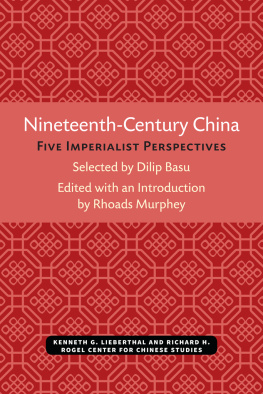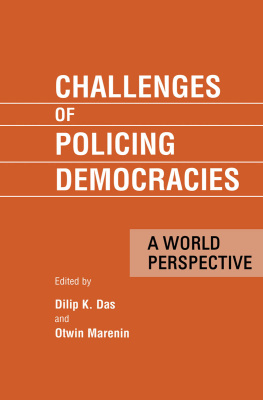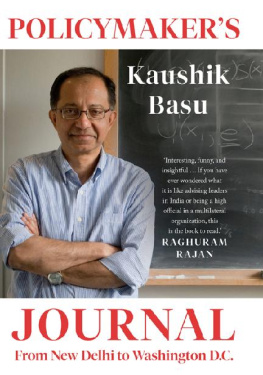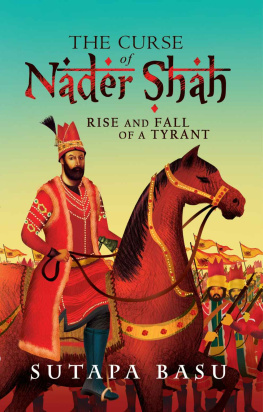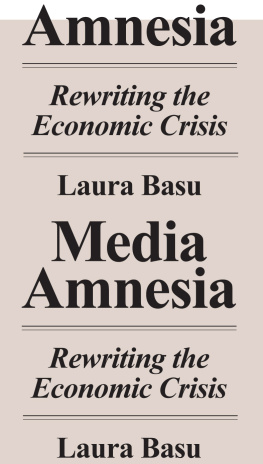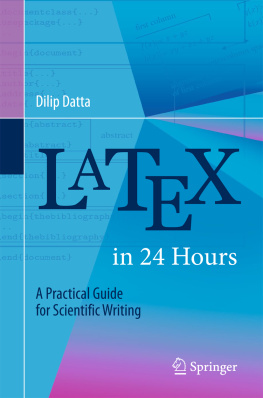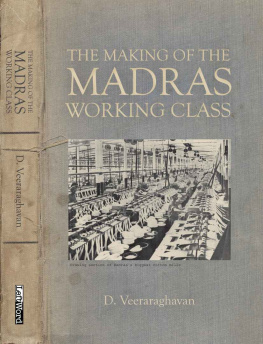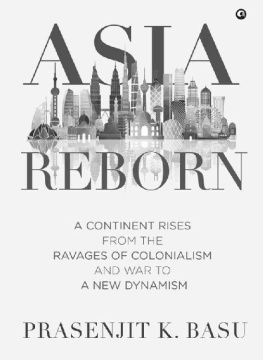Dilip Basu - Nineteenth Century China: Five Imperialist Perspectives
Here you can read online Dilip Basu - Nineteenth Century China: Five Imperialist Perspectives full text of the book (entire story) in english for free. Download pdf and epub, get meaning, cover and reviews about this ebook. year: 2020, publisher: Kenneth G. Lieberthal and Richard H. Rogel Center for Chinese Studies, genre: Science. Description of the work, (preface) as well as reviews are available. Best literature library LitArk.com created for fans of good reading and offers a wide selection of genres:
Romance novel
Science fiction
Adventure
Detective
Science
History
Home and family
Prose
Art
Politics
Computer
Non-fiction
Religion
Business
Children
Humor
Choose a favorite category and find really read worthwhile books. Enjoy immersion in the world of imagination, feel the emotions of the characters or learn something new for yourself, make an fascinating discovery.
- Book:Nineteenth Century China: Five Imperialist Perspectives
- Author:
- Publisher:Kenneth G. Lieberthal and Richard H. Rogel Center for Chinese Studies
- Genre:
- Year:2020
- Rating:5 / 5
- Favourites:Add to favourites
- Your mark:
- 100
- 1
- 2
- 3
- 4
- 5
Nineteenth Century China: Five Imperialist Perspectives: summary, description and annotation
We offer to read an annotation, description, summary or preface (depends on what the author of the book "Nineteenth Century China: Five Imperialist Perspectives" wrote himself). If you haven't found the necessary information about the book — write in the comments, we will try to find it.
Dilip Basu: author's other books
Who wrote Nineteenth Century China: Five Imperialist Perspectives? Find out the surname, the name of the author of the book and a list of all author's works by series.
Nineteenth Century China: Five Imperialist Perspectives — read online for free the complete book (whole text) full work
Below is the text of the book, divided by pages. System saving the place of the last page read, allows you to conveniently read the book "Nineteenth Century China: Five Imperialist Perspectives" online for free, without having to search again every time where you left off. Put a bookmark, and you can go to the page where you finished reading at any time.
Font size:
Interval:
Bookmark:

THE UNIVERSITY OF MICHIGAN CENTER FOR CHINESE STUDIES
MICHIGAN PAPERS IN CHINESE STUDIES
NINETEENTH CENTURY CHINA: FIVE IMPERIALIST PERSPECTIVES
Selected by Dilip Basu
Edited and with an introduction by Rhoads Murphey
Ann Arbor
Center for Chinese Studies
The University of Michigan
1972
Michigan Papers in Chinese Studies No. 13
Open access edition funded by the National Endowment for the Humanities/Andrew W. Mellon Foundation Humanities Open Book Program.
Copyright 1972
by
Center for Chinese Studies
The University of Michigan
Printed in the United States of America
ISBN 978-0-89264-013-3 (hardcover)
ISBN 978-0-472-03801-5 (paper)
ISBN 978-0-472-12741-2 (ebook)
ISBN 978-0-472-90136-4 (open access)
The text of this book is licensed under a Creative Commons Attribution-NonCommercial-NoDerivatives 4.0 International License: https://creativecommons.org/licenses/by-nc-nd/4.0/
TABLE OF CONTENTS
by
Rhoads Murphey
Efforts to reconstruct the past, and to understand it, must depend on the survival of materials. What survives is partly haphazard, partly the result of varying circumstances of time and place, and partly of the attitudes of those responsible for creating, maintaining, and preserving records and other documents. But attitudes change, and what may seem of little consequence to some at certain times may become highly significant to others at other times. Even the Chinese were far from either recording or preserving everything, and each dynastic group of officials and scholars made a selection of what was considered important, discarding far more than they kept. What survives from traditional China is not necessarily what contemporary scholars would have chosen to preserve -- or to have recorded or studied in the first place.
Some of the materials from the past which tend often to be overlooked are those which wrongly anticipate the future or which present information or judgements which were later proved to be misleading or erroneous. And yet such documents are as legitimate, and perhaps as important, a sample of the period from which they come as others whose material has been vindicated by events or whose perspectives do not jar with those of later generations. Changing perspectives constitute of course the other dimension of the process by which successive generations re-write history. Some things become newly significant and others less so; equally important, each new group of scholars looks for and selects different things, in addition to interpreting the same things differently. Every piece of historical reconstruction is written for its own present. It cannot and perhaps should not be otherwise, but it is useful to remember that this is so, and at the same time to guard against the extremes of mis-representing the past in its own terms. One common risk of doing so results from the effort to discover in the past the seeds of the present. They are there, of course, but they are far from being the whole of the past.
The five documents reproduced here are each typical of the periods from which they come, but none of them represents what might be called the main stream in the sense that each was overtaken or contradicted by events. Given the legitimacy of attempting to see every period as much as possible in its own terms, if not (since that is impossible) wie es eigentlich gewesen, it is important to consider at least a representative sample of everything which was written or recorded: in this case, what China looked like and suggested to Englishmen on the spot in Canton and Hong Kong in the first half of the nineteenth century, and how they viewed their own country and its role vis-a-vis the China they observed. The first account, by Samuel Ball, was originally printed as a pamphlet in Macao in 1817, and as a consequent piece of ephemera was fortuitously preserved in the Public Records Office in London. The other four accounts, from 1838, 1845, 1847, and 1848, have never before been printed and also found their way, as holographs, to the P. R. O. None of them enjoyed much currency after they were written, for the kinds of reasons discussed above. They were seen at the P. R.O. by Professor Dilip Basu, now of the University of California at Santa Cruz, while he was doing research in London in 1970. He recognized their interest and importance, in the terms already discussed, made xerox copies of each, and, during his term as a Research Associate of the Center for Chinese Studies at Michigan in 1971, loaned them to me to read in connection with my own research on this period, one in which our interests coincide and overlap. We agreed on the usefulness of making them available to a wider audience.
The servants of the East India Company at their Canton factory included many who, like their compatriots in India, made a serious effort to learn and to understand something of the country and civilization on whose margins they conducted their business. After the early Jesuits, they represent the beginning of modern Western efforts to study China and the Chinese. Some of them learned more or less of the language, and a few, including the authors of the first two pieces reproduced here, went so far as to include some Chinese characters and even references to Chinese sources in what they wrote. A small handful, more daring, disguised themselves as Chinese (after taking their Chinese servants or travelling companions into their confidence) and made information-collecting trips inland before the post-1842 treaty provisions made this officially possible. Whatever their points of view or motives, Westerners were widely curious about China, especially the Westerners on the spot, while the Chinese were much less interested in them or in the countries and cultures from which they came. Part of the imperialist mind consisted in this eagerness to explore the world, to get a picture of all of its parts -- and as rapidly as possible to open all areas to the beneficent influence of the West, notably through an expanded commerce as the sovereign medium of cultural interchange which would also enrich its Western masters.
About 60 per cent has been selected from the originals of Samuel Balls pamphlet and the anonymous account, A Dissertation Upon the Commerce of China, leaving out extensive sections of factual description of the landscapes, products, and towns of each of Chinas provinces, most of it apparently based on published works which are still available but adding nothing to existing knowledge. R. M. Martins shorter essay is reproduced here in its entirety. The fourth document, an exchange of correspondence in 1847 about British access to and use of land in the vicinity of Canton, has been edited to remove some repetition (primarily the summary by Harry Parkes, which adds nothing); the final piece, on the Morrison Education Society, is set forth in full. Obvious errors of spelling, punctuation, and grammar in each of the originals have been corrected, and in a few cases archaic spellings which might confuse a contemporary reader have been altered to conform with contemporary usage.
Samuel Balls Observations show how much detailed information (and some misinformation) was available to the Westerners even under the Canton system, and elaborates what it was which the British, with their mercantile mind, were after. Du Halde, Staunton, Barrow, and other existing published works readily available at the time provided a good deal of factual information as well as commentary. But the calculations of a British merchant, leading Ball in this case to fix on Foochow as the optimal port for maximizing British access to the trade of China, led him very wide of the mark, as subsequent experience was to prove. Admittedly, he was hampered by incomplete and inaccurate information about important areas and ports, notably Shanghai, and perhaps he is also not to be faulted too harshly for failing to anticipate the relative decline in the importance of tea in Chinas foreign trade. But too narrow a set of computations appears to have led him to overlook some more important matters, most pointedly the enormous relative advantage enjoyed by Shanghai, Canton, and later Hankou and Tientsin in terms of their ease of access as well as nearness to the bulk of the China market and to its major sources of export goods. China is a huge and enormously productive country; the presence of a cluster of prosperous merchants and the existence of a substantial seaborne trade in one of its hundreds of cities (which Ball happened to know about because it was a southeast coastal port) was of far less significance than he apparently realized. In practice, Foochow, opened as one of the first five treaty ports by the Treaty of Nanking in 1842, never became a place of more than third-rank importance in Chinas foreign trade or of the Western role in that trade. The tea which Ball counted on moved out largely via Shanghai and Canton, by cheap and heavily travelled water routes; ironically, Foochow was relatively less important as a treaty port than it had been in Balls day. His account does provide a good deal of interesting detail on the tea trade and its carriage, as well as a more general picture of foreign commerce in the second decade of the nineteenth century.
Font size:
Interval:
Bookmark:
Similar books «Nineteenth Century China: Five Imperialist Perspectives»
Look at similar books to Nineteenth Century China: Five Imperialist Perspectives. We have selected literature similar in name and meaning in the hope of providing readers with more options to find new, interesting, not yet read works.
Discussion, reviews of the book Nineteenth Century China: Five Imperialist Perspectives and just readers' own opinions. Leave your comments, write what you think about the work, its meaning or the main characters. Specify what exactly you liked and what you didn't like, and why you think so.

